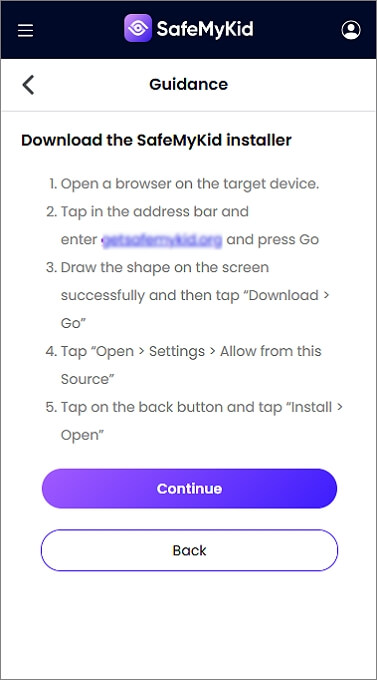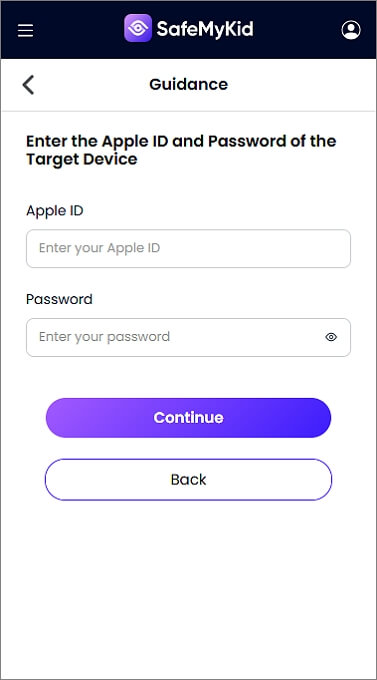Characteristics of a Cheating Woman: 7 Red Flags You Need to Know

Spotting the signs of infidelity can be challenging. However, recognizing the characteristics of a cheating woman can provide clarity and help you navigate the situation more effectively.
While no one wants to assume the worst about their partner, certain behavioral patterns may indicate unfaithfulness. This article will explore seven key characteristics of a cheating woman and introduce a reliable way to discreetly monitor her activities if suspicions arise.

Why Do Women Cheat in a Relationship?
Infidelity in relationships is often complex and influenced by various emotional, psychological, and situational factors. While many assume that women only cheat when they are unhappy, the reasons for infidelity go beyond dissatisfaction. Below are some of the most common reasons why women cheat in a relationship.

- Emotional Neglect and Lack of Attention
- Revenge or Retaliation
- Lack of Excitement and Boredom
- Emotional Connection with Someone Else
- Low Self-Esteem and Validation Seeking
- Influence of Friends or Social Environment
- Opportunity and Temptation
- Lack of Commitment or Unclear Relationship Boundaries
- Past Trauma and Unresolved Issues
Women often seek emotional connection in a relationship. When their emotional needs are not met—whether due to lack of communication, affection, or understanding—they may look for intimacy elsewhere, an emotional affair can sometimes lead to a physical one when the connection deepens.
Some women cheat as a way to get back at a partner who has been unfaithful or emotionally neglectful. This act of revenge cheating is often fueled by feelings of betrayal, anger, and the desire to even the score.
Long-term relationships can sometimes become routine and predictable. When excitement and passion fade, some women may seek new experiences or thrills outside their relationship to regain a sense of excitement and adventure.
Sexual dissatisfaction can also be a reason for infidelity. If a woman feels that her physical desires are not being fulfilled in her current relationship, she may be tempted to seek intimacy elsewhere.
Unlike men, who often cheat for physical reasons, women are more likely to cheat due to emotional bonding. When a woman forms a deep emotional connection with someone outside her relationship, it can gradually lead to physical infidelity.
Some women cheat to boost their self-esteem. When they feel unattractive, unappreciated, or undervalued, attention from someone new can make them feel desired and important. This external validation can lead to cheating, even if they love their partner.
Peer pressure and the influence of a social circle can also contribute to infidelity. If a woman is surrounded by friends who normalize or encourage cheating, she may be more likely to engage in the behavior herself.
Sometimes, cheating happens simply because the opportunity arises. Being in an environment where temptation is high—such as work trips, parties, or social gatherings—can lead to infidelity, especially if boundaries are weak.
If a woman is not fully committed to the relationship or if there are unclear expectations between partners, she may not see cheating as a major betrayal. Some people have different views on loyalty and may not consider certain actions as cheating.
Some women who have experienced past emotional trauma, such as childhood neglect or previous toxic relationships, may struggle with trust and commitment. Unresolved emotional wounds can sometimes lead to self-sabotaging behaviors, including infidelity.
7 Key Characteristics of a Cheating Woman
Relationships thrive on trust and transparency, but when one partner begins to act differently, it could be a sign of infidelity. While not every behavioral change indicates cheating, certain patterns can raise red flags. Here are some key characteristics that may suggest a woman is being unfaithful.
1. Increased Secrecy
A common sign of cheating is heightened secrecy around personal devices and activities. If your partner starts hiding her phone, using secretive passwords, or being evasive about her whereabouts, it could be a red flag.
She may delete messages, avoid sharing details about her day, or keep her phone on silent to avoid unwanted attention.

Why It Matters
Secrecy often indicates a desire to hide something, whether it is communication with someone else or activities she does not want you to know about. If your previously open partner becomes secretive, it is worth paying attention to her behavior.
2. Emotional Detachment from the Relationship
A cheating woman may become emotionally distant. She might stop engaging in meaningful conversations, show less interest in your feelings, or avoid intimacy altogether. This emotional gap often grows as her attention shifts elsewhere.

How This Affects the Relationship
Emotional detachment can lead to a breakdown in communication and intimacy. When someone invests their emotional energy outside the relationship, it is challenging to maintain a strong connection with their current partner.
3. Unexplained Changes in Routine
If your partner suddenly has new work commitments, frequent "girls' nights out," or random errands, it could indicate infidelity. These changes may be used to create opportunities to meet someone else while keeping you unaware.

Spotting Inconsistencies
Pay attention to patterns. If the stories do not add up or the explanations seem vague, it could be a sign that something is off. It is essential to approach these observations with a balanced perspective, avoiding immediate accusations.
4. Increased Attention to Appearance
When a woman suddenly puts extra effort into her looks, especially if she previously did not, it could be a sign of cheating. This might include new clothing, a change in hairstyle, or more frequent trips to the gym.
Alt: Increased attention to appearance

What to Watch For
While self-improvement is healthy, it is the context that matters. If these changes align with new social activities or secretive behavior, they might be connected to infidelity.
5. Frequent Defensiveness and Accusations
A cheating woman may become defensive if questioned about her actions. She might even accuse you of cheating, a tactic known as projection. This reaction often aims to deflect attention away from her own behavior.

Understanding Projection
Projection is a psychological defense mechanism where an individual attributes their feelings or actions to someone else. If your partner is overly defensive or accusatory, it could be an attempt to shift the focus away from her potential infidelity.
6. Decreased (or Increased) Sexual Interest
Changes in sexual behavior can also indicate infidelity. Some women lose interest in intimacy with their partner, while others may become more experimental, either to mask their guilt or bring new ideas learned elsewhere into the relationship.

What This Means
A sudden drop in intimacy often points to emotional detachment, while an unusual increase could signify overcompensation. In either case, a significant change in sexual behavior is worth noting.
7. Secretive Financial Transactions
A woman who is cheating may make unexplained purchases, withdraw cash secretly, or hide financial documents. These actions often fund secret meetups, gifts, or support a hidden lifestyle.

Financial Red Flags
Keep an eye on bank statements, credit card bills, or unusual transactions. If your partner is hiding her spending habits, it might indicate she is funding activities related to her affair.
Effortlessly Monitor a Cheating Woman with a Professional Tool
If you suspect infidelity, SafeMyKid is a powerful and discreet tool designed to help you monitor a cheating woman's activities with ease.
This advanced app provides comprehensive tracking features, allowing you to keep an eye on her digital footprint, including calls, messages, social media interactions, and location history.
With SafeMyKid, you can gather valuable insights without invading privacy excessively, giving you the clarity and peace of mind needed to make informed decisions about your relationship.

Main Features of SafeMyKid That Help You Identify The Characteristics of a Cheating Woman
SafeMyKid provides features that can also reveal signs of infidelity. If you suspect dishonesty, these features can help you gather insights into your partner’s behavior.
- Real-Time Location Tracking: Instantly check her exact whereabouts to see if she’s where she claims to be.
- Call and Message Monitoring: Review call logs and text messages, including deleted ones, to detect any suspicious contacts.
- App Activity Insights: Track social media and messaging app usage to identify excessive or secretive communication.
- Geofencing Alerts: Set up virtual boundaries and receive notifications when she enters or leaves certain locations unexpectedly.
- Battery Level Tracking: A common excuse for being unavailable is a dead phone—this feature ensures you know when that’s really the case.
- Browsing History Monitoring: Gain insights into her internet activity, including searches related to secretive behavior or dating platforms.
- Stealth Mode Monitoring: Keep an eye on her activity without her knowing, ensuring you collect accurate information without interference.
How to Identify The Characteristics of a Cheating Woman
If you suspect infidelity, setting up SafeMyKid can help you monitor key behaviors discreetly. Follow these steps to install and configure the app to track suspicious activity.
How to Identify the Characteristics of a Cheating Woman on Android
Step 1. Sign Up
Create an account on SafeMyKid via the official website.

Step 2. Install and Set Up The App on Android
Download and install SafeMyKid on the target Android device. Follow on-screen instructions to set up the app.

Step 3. Identify The Characteristics of a Cheating Woman on Android
Log in to your SafeMyKid dashboard to track location, calls, messages, and app activity.

How to Identify the Characteristics of a Cheating Woman on iPhone
Step 1. Sign Up
Register for a SafeMyKid account on the website.

Step 2. Link with iCloud
Enter the iCloud credentials of the target iPhone to enable remote tracking. No app installation is required!

Step 3. Identify The Characteristics of a Cheating Woman on iPhone
Access the SafeMyKid dashboard to track location, calls, and online activity without needing physical access to the device.

Why Choose SafeMyKid to Identify The Characteristics of a Cheating Woman?
SafeMyKid stands out for its ease of use, robust features, and compatibility with both Android and iPhone devices. It provides a comprehensive view of your partner's digital activities without being intrusive, making it an ideal choice for monitoring potential infidelity.
One of the key reasons to choose SafeMyKid is its real-time location tracking feature. If your partner frequently lies about her whereabouts or makes excuses for being unreachable, this tool allows you to verify her location instantly.
Another critical feature is call and message monitoring, which enables you to review incoming and outgoing calls. If there are frequent interactions with an unknown number or secretive texting behavior, this feature can help you uncover hidden details.
Ultimately, SafeMyKid offers a combination of advanced tracking capabilities and user-friendly operation, making it the go-to solution for identifying potential infidelity.
Official and Alternative Methods to Monitor a Cheating Woman
When suspicions arise, there are different ways to gather information. While official methods provide limited but legitimate access to a partner’s activities, alternative methods may offer additional insights but come with ethical considerations. Below are two common approaches:
Official Method: Using Find My Device

Most smartphones have built-in tracking features like Apple's Find My iPhone or Google's Find My Device. These tools allow you to locate a device, make it ring, or lock it remotely. However, these official methods have limitations:
Advantages:
- Free to use, easy to set up, and reliable for real-time location tracking.
Disadvantages:
- Limited to location data, requires access to account credentials, and may alert the phone owner if activated.
Alternative Method: Social Media Snooping
Monitoring social media activity can sometimes reveal signs of infidelity. Observing sudden changes in online behavior—such as increased privacy settings, frequent interactions with unknown individuals, or deleted posts—can indicate something suspicious. However, this method has its downsides:
Advantages:
- Offers clues through posts, comments, and friend interactions.
Disadvantages:
- May lead to misinterpretations, is unreliable if profiles are private, and can invade privacy.
For those seeking a more comprehensive approach, specialized monitoring tools like SafeMyKid provide deeper insights without triggering alerts, ensuring more accurate and discreet monitoring.
How to Approach Your Woman about Your Suspicions without Causing Conflict
Discovering signs that make you suspect your partner of cheating can be emotionally overwhelming. However, confronting her in a way that is aggressive, accusatory, or based on assumptions can lead to unnecessary conflict—whether she is guilty or not.

The key is to approach the conversation with calmness, clarity, and a willingness to understand. Here’s how you can do it effectively:
- Reflect on Your Feelings and Gather Your Thoughts
- Are my suspicions based on concrete signs, or could they be driven by personal insecurities?
- Have I noticed any unusual behavioral patterns, or am I reading too much into things?
- Choose the Right Time and Place
- Use a Non-Accusatory and Open-Ended Approach
- "Lately, I’ve been feeling like there’s some distance between us, and I wanted to talk about it. Is there something going on that I should know about?"
- "I've noticed some changes in our relationship, and I just want to understand if everything is okay."
- Focus on Your Feelings Instead of Accusations
- Listen to Her Side Without Interrupting
- Stay Calm and Control Your Emotions
- Be Prepared for Any Outcome
Before bringing up your suspicions, take time to process your emotions. Ask yourself:
Approaching the conversation with a clear head will help prevent unnecessary accusations and emotional outbursts.
Timing and setting matter when discussing sensitive topics. Avoid bringing up your suspicions in public, during an argument, or when either of you is stressed, tired, or distracted. Instead, choose a private, calm environment where you can both focus on the conversation.
Rather than making direct accusations like, "I know you’re cheating on me!", use an open-ended and non-confrontational approach. This encourages an honest conversation without making her feel defensive. For example, you can say:
This way, you express concern without immediately blaming her.
Using “I” statements instead of “You” statements can make a huge difference in how the conversation unfolds. Saying “You are always hiding your phone!” can sound like an attack, whereas “I feel a little uneasy when I see changes in our communication” makes it about your emotions rather than an accusation.
Give her a chance to respond. If she gets defensive, avoid escalating the situation. Instead, reassure her that your intention is to understand, not to accuse. Even if her reaction seems suspicious, observe her words and body language carefully before jumping to conclusions.
Even if she denies everything or turns the conversation on you, avoid losing your temper. Raising your voice or making threats will only push her away and make it harder to uncover the truth. Stay composed, and if the discussion gets too heated, suggest revisiting it later.
You might not get the answer you expect or want. She may admit to something, deny everything, or even turn the suspicion back on you. Regardless of the outcome, be prepared to make decisions that prioritize your emotional well-being. If needed, consider couples counseling or seeking advice from a trusted confidant.
FAQs on Characteristics of a Cheating Woman
When it comes to infidelity, many people have questions about the signs, reasons, and patterns of a cheating partner. Below are some frequently asked questions that can help provide clarity on the topic.
1. Can a woman cheat even if she is happy in her relationship?
Yes, while dissatisfaction is a common reason for infidelity, some women cheat despite being in a seemingly happy relationship. Factors such as thrill-seeking behavior, personal insecurities, or external temptations can contribute to cheating, even in relationships that appear stable.
2. How can emotional cheating be different from physical cheating?
Emotional cheating involves forming a deep emotional connection with someone outside the relationship without physical intimacy. While there may be no physical betrayal, emotional affairs can be just as damaging because they create distance, secrecy, and a loss of trust between partners.
3. What should I do if I suspect my partner is cheating but have no concrete proof?
If you suspect infidelity but lack solid evidence, avoid making accusations without verification. Instead, look for consistent behavioral patterns, communicate openly with your partner, and consider using tools like SafeMyKid to discreetly monitor her activities and gain clarity.
4. Is it possible for a relationship to recover after a woman has cheated?
Yes, but rebuilding trust requires open communication, honesty, and a willingness from both partners to work through the betrayal. Professional counseling or therapy can also help address underlying issues and create a healthier foundation for the relationship moving forward.
5. What are some subtle behaviors of a cheating woman that people often overlook?
Some overlooked signs include excessive phone use at odd hours, frequent "new friends" who are never introduced, sudden mood swings, reluctance to make future plans, or an unusual interest in privacy regarding financial transactions or social media.
6. Can long-distance relationships increase the likelihood of a woman cheating?
Long-distance relationships can present unique challenges, such as emotional loneliness and reduced physical intimacy, which may increase the temptation to cheat. However, strong communication, trust, and commitment can help maintain fidelity despite the distance.
Conclusion
While these seven characteristics of a cheating woman do not necessarily confirm infidelity, they serve as crucial warning signs that something may be amiss in your relationship.
If multiple red flags appear, using a reliable tool like SafeMyKid can provide valuable insights and clarity. However, technology alone is not enough—open communication, trust, and a balanced approach remain essential when dealing with such sensitive matters.




